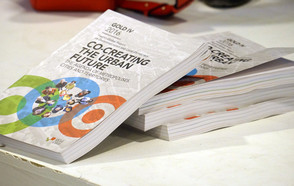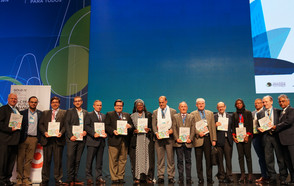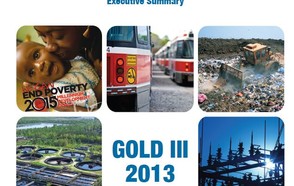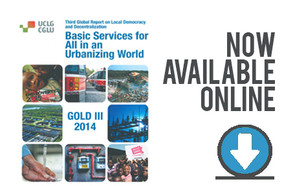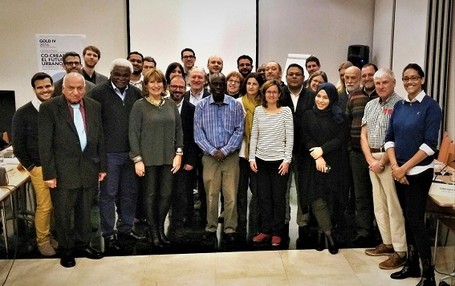
On 26 and 27 January 2018, at the end of the UCLG Retreat and Campus, UCLG launched the preparation of the 5th Report of the Global Observatory on Decentralization and Local Democracy (GOLD). This is a participatory process that brings together the expertise of local and regional government associations, researchers from different geographical regions, as well as UCLG committees and partners. The meeting analyzed the challenges and ambitions in each region of the world.
State of the affairs of the role of local and regional governments in implementing the Sustainable Development Goals (SDGs
Kontxi Odrioloza, from the Department of International Relations of the Barcelona Provincial Council, opened the session and underlined their support to the GOLD V Report in order to make the voice of local and regional governments heard and to enhance their contribution to the achievement of the SDGs, the New Urban Agenda and the other global agendas adopted by the United Nations in 2015 and 2016.
UCLG stressed that the aim of the 5th GOLD Report is to analyse the contribution of local and regional governments to the ‘localization of the SDGs’. Twelve years after GOLD I, the new report will analyse the institutional context of the countries of the different regions in which local and regional governments are operating. UCLG insisted, in particular, in the need to identify and highlight the vision of territories and to strengthen collaboration between the various levels of government (multi-level governance) and local actors.
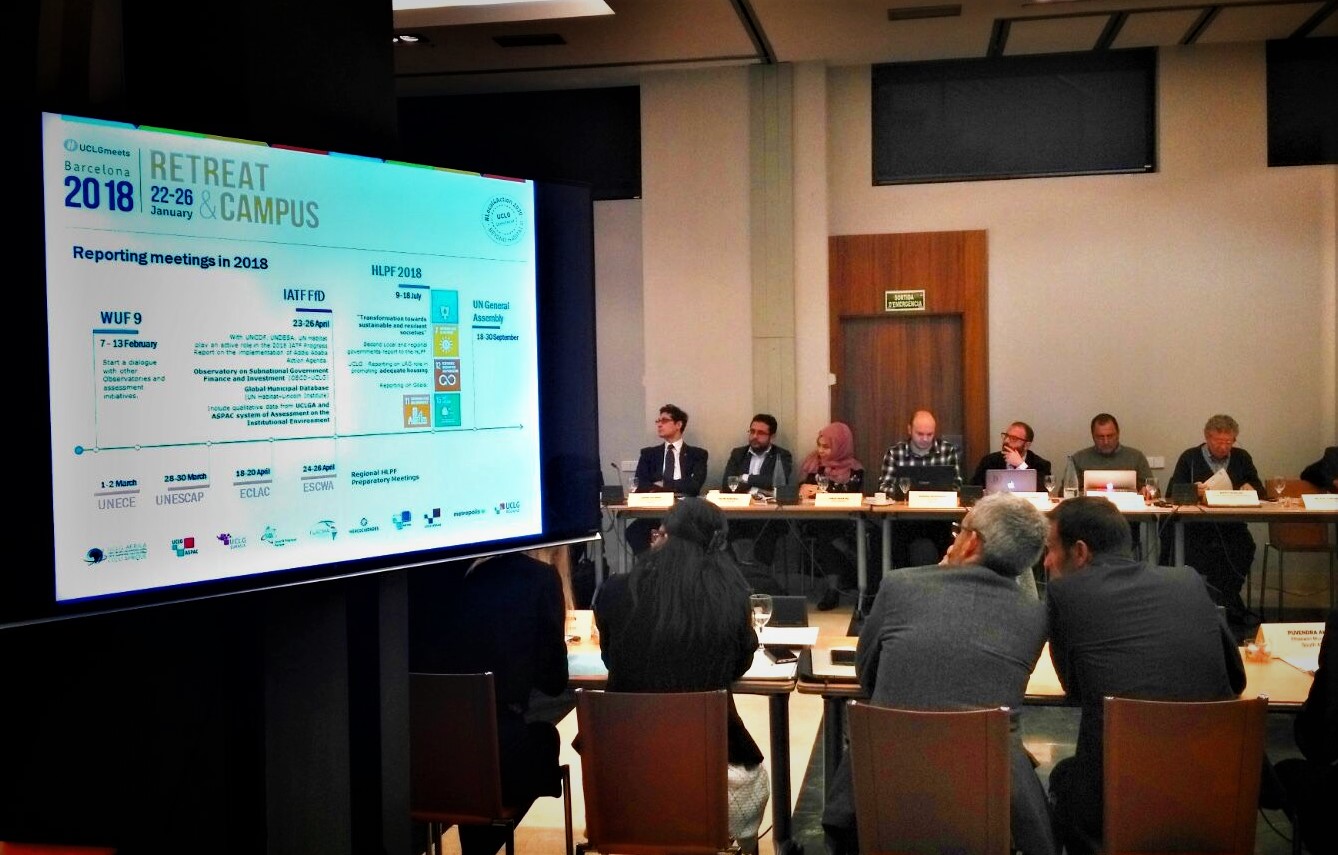
Throughout the sessions, UCLG members and experts discussed the challenges of analysing the institutional contexts in which the SDGs are implemented. UCLG ASPAC and UCLG Africa presented their experiences in analysing the enabling institutional environment for local governments in their regions (Assessement of the Insitutionnal Enabling Environment of Local Governments). At the end of the session, representatives of the sections stressed that they had learned from each other. Regarding the national monitoring mechanisms of the SDGs, the Association of Netherlands Municipalities (VNG) shared its contribution to the report of the Voluntary National Reviews of the Netherlands in 2017 and presented the activities of the UCLG Working Group on Capacity and Institution Building (CIB) to support the associations of the different countries to participate in the process.
Participants highlighted that there is still a long way to go in the dissemination of the SDGs among local and regional governments. CEMR, Mercociudades and Flacma invited the experts attending the meeting to go beyond jargon and come closer to the realities and action in order to better understand the contribution of territories to the 2030 agenda.
UCLG recalled that, in support of the Global Taskforce, the organization would present a new report on the ‘localization of the SDGs’ at the United Nations High-Level Political Forum in July 2018. This year 2018, the Forum will focus on Transformation towards sustainable and resilient societies and will focus on the progress made on SDG 11, on inclusive, safe, resilient and sustainable cities and human settlements.
Reaffirming the strength of innovation and co-creation of local and regional governments
In the second day of the sessions, Emilia Saiz, Secretary General of UCLG, also added that the spirit of GOLD was to inspire members to learn from each other and to create innovative solutions.
The experts will have the support of the different networks of cities and regions, as well as resources such as the Policy Transfer Platform hosted by Metropolis, the International Observatory of Participatory Democracy or the LocalizingtheSDGs platform to identify and collect local experiences. Other UCLG members, such as the UCLG Committee on Culture, also intervened to underline the innovative role of cities in the recognition of the Right to the City - recognized in the Habitat III Declaration - as well as of culture in building sustainable cities and territories.
Edgardo Bilsky concluded the session by inviting all participants to work together and to multiply synergies. “GOLD is not only a report, above all, it is a participatory process to make knowledge arise from the territory”.
More information:











